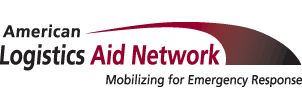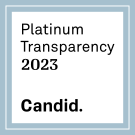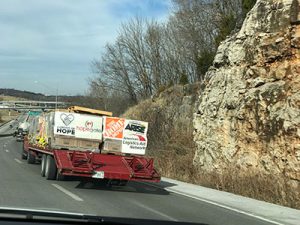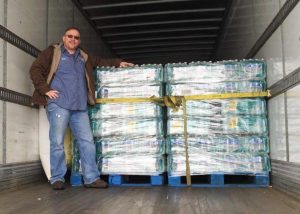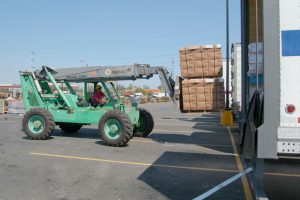As you are well aware, Hurricane Laura made landfall in Louisiana earlier this morning. Since then, ALAN has heard from many people who are anxious to know, “What can we do?” (And thank you for all of those questions!)
We hope to have specific answers soon, because we are working closely with the non-profit community to determine what is needed. And as their requests for assistance begin to arrive (some of which we’re vetting now), we will share them via our Disaster Micro-site and other channels.
Meanwhile, there are still many ways all of us can put our shoulders to the wheel and begin to help – which is why we’d like to pass along the following practical Do’s And Don’ts.
On behalf of all of us at ALAN, thank you for being part of this amazing community and for helping us save lives and deliver hope through logistics. We DO appreciate you, and we DON’T ever take your contributions for granted.
Sincerely,
Kathy Fulton
Executive Director
American Logistics Aid Network
ALAN’s Helpful Post-Hurricane Relief Do’s And Don’ts
DO make sure your employees are safe – and supported.
If any of your facilities were (or are) located in Laura’s path, be sure to check in with your employees to ensure they are safe and sound. And if they have been impacted, make helping them and their families your first priority, because even though many government and non-profits will be stepping in to provide relief, few things are more meaningful than knowing that the people we work with (and for) have our backs.
DON’T forget that we’re here for you.
Have any of your operations been impacted by the Hurricane Laura? Do you need any specific information or insights – and if so, what kind? Be sure to check out our Supply Chain Intelligence Center, where you’ll find a wealth of information about everything from advisories to supply chain impacts. Or drop us a line on our contact page. We’ll do our best to get you an answer or to put you in touch with someone who can.
DO let us know if you might be willing to help.
If you have warehouse space, trucks, equipment, or expertise to share, go ahead and offer it now. (And please know that we understand you’re making an offer, not a guaranteed commitment to provide services. It just lets us know that you’re okay with us reaching out and at least asking if you might be able to assist.) The more advance information we have about available resources, the more quickly and effectively we’ll be able to fulfill requests for assistance as they come in.
DON’T assume you can’t be of help just because your operations are nowhere near the damaged areas.
Often the donated materials that urgently need to get to disaster sites may be located much farther away and require more logistics support than you might imagine. As a result, the seemingly random or remote location, service, or piece of equipment you’re offering may be just the ticket.
DO check ALAN’s web site and Disaster Micro-site often over the next few weeks.
We’ll be updating it frequently as conditions change, including posting specific relief requests and sharing any important infrastructure updates.
DON’T host a collection drive for products.
Although the intention behind these drives is good, they often create more challenges than they solve – including adding more friction to a supply chain that is already under tremendous strain. At a time when transportation capacity to disaster-impacted markets is so overloaded, the last thing we need to do is choke it even more.
DO consider helping in other ways instead.
If you’re looking for a tangible way to engage your employees in hurricane relief, pick a humanitarian organization like one of the many that ALAN supports and collect money for it instead. Such donations will be much more useful and efficient, especially right now. And unlike many post-disaster product donations (which often end up in landfills), they will not go to waste.
